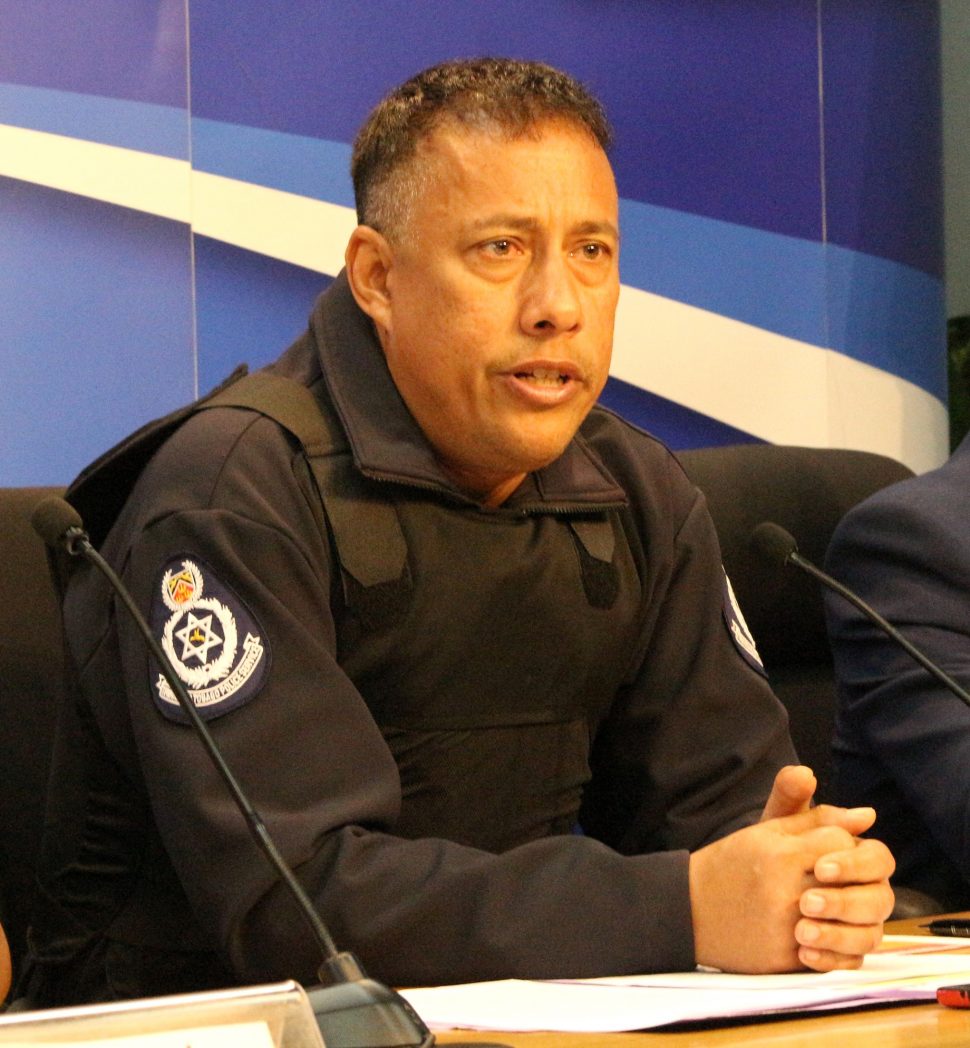(Trinidad Guardian) Police Commissioner Gary Griffith says within the next two weeks over 140 police officers who work on the borders of the southwestern peninsula will undergo polygraph (lie detector) tests.
Griffith, who met with the officers two weeks ago, explained that the test was not an indication of guilt but was meant to determine whether the right set of people are placed in the zones where drug trafficking, gun running, smuggling and human trafficking take place.
As Griffith moves to strengthen manpower in the zones, he noted that the polygraph test would be a key indicator to determine whether officers will remain working in the peninsula.
“All officers on the border will be asked two questions: Do you receive remuneration for illegal weapons and guns and human trafficking? And are you aware of the individuals involved but has not operated as a police officer to bring the perpetrators to justice?” Griffith revealed.
He denied, however, that the results of the test will lead to the termination of any police officer.
“The questions are not aimed to discipline any officer but just as they would be polygraphed to get into an elite unit, the questions are there to ensure that the right persons will be in those positions in the peninsula,” Griffith said.
He added, “If anyone is a rogue officer and is placed in a position that he is not suited, he can cost the life of his fellow officers.”
Griffith said when he first raised the issue of polygraph tests, the majority of police officers were very comfortable with the request, but then misinformation set in and caused confusion.
“Initially, less than five per cent was not prepared to be polygraphed. Someone got a bright idea to spread a false rumour that if they fail to take the test they will be disciplined and removed from the TTPS. That was totally incorrect and did not emanate from the Commissioner,” Griffith reiterated.
He said if red flags are raised after an officer takes the tests, then further research will be done to see if the officer needed to be reassigned.
“I met with all of these officers about two weeks ago to clarify their concern and they were pleased to understand my thought patterns and most of them agreed to do the test,” Griffith said.
He noted that the basic polygraph will commence within the next two weeks.
“It will not be an avenue to administer guilt but it is being done to ensure there is no breach in the borders by possible rogue elements in the T&T Police Service,” he added.
Griffith also agreed there was a need to do continued psychometric testing among all officers.
“I agree that there must be a continued evaluation to ensure that officers possess the same character traits as when they entered the TTPS. People change and circumstances change and this is an avenue that we could use to clean up the Police Service,” Griffith said.
Last year, 40 officers were transferred from the southwestern peninsula of Erin, Cedros and Icacos to inland stations at Point Fortin, Santa Flora, Siparia, Fyzabad and Oropouche, after they refused the polygraph test.
T&T Police Social and Welfare Association (TTPSWA) president Michael Seales then expressed his support for the transfers and urged Griffith to polygraph all 7,000 officers in the TTPS. Apart from the polygraphs and routine psychometric tests, Griffith also plans to boost manpower in the peninsula. High-tech drones will also be utilised to monitor the borders in real time.






